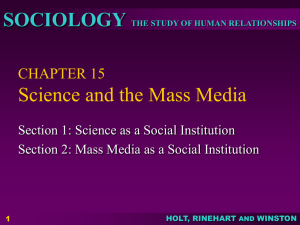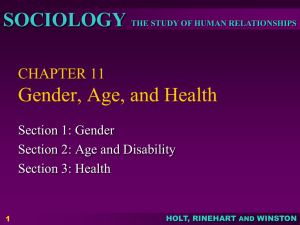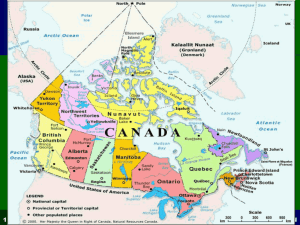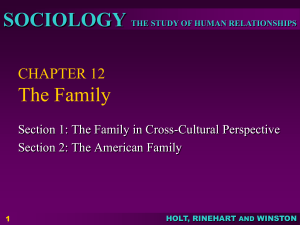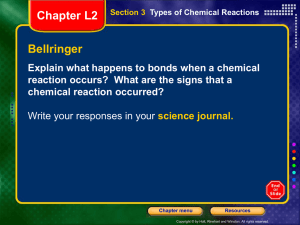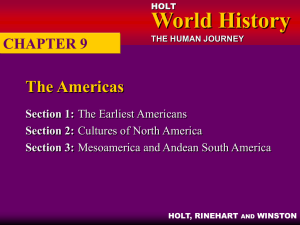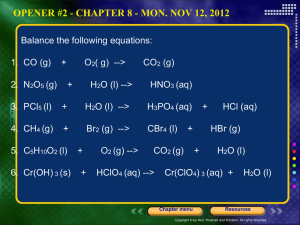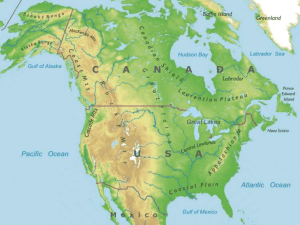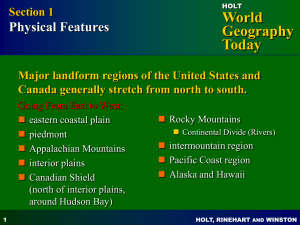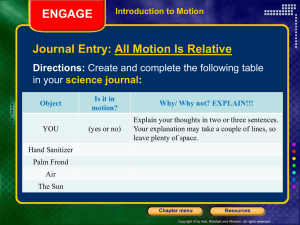Political Parties
advertisement
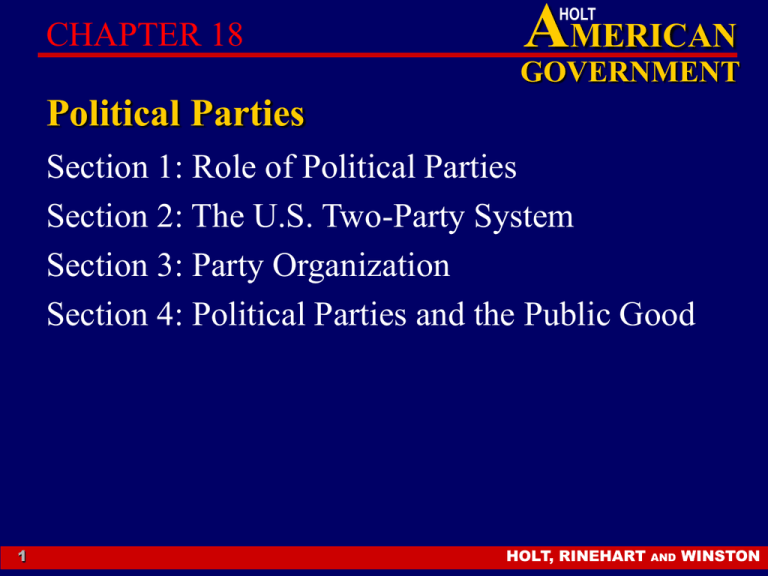
CHAPTER 18 AMERICAN HOLT GOVERNMENT Political Parties Section 1: Role of Political Parties Section 2: The U.S. Two-Party System Section 3: Party Organization Section 4: Political Parties and the Public Good 1 HOLT, RINEHART AND WINSTON Political Parties Section 1: Role of Political Parties AMERICAN HOLT GOVERNMENT Objectives: What are political parties? What functions do political parties serve? What are the different kinds of party systems? 2 HOLT, RINEHART AND WINSTON Political Parties Section 1: Role of Political Parties AMERICAN HOLT GOVERNMENT Political parties are organized groups that try to influence government power. 3 HOLT, RINEHART AND WINSTON Political Parties Section 1: Role of Political Parties AMERICAN HOLT GOVERNMENT Functions of political parties: assisting the electoral process organizing the day-to-day operations of government nominating candidates for office 4 HOLT, RINEHART AND WINSTON Political Parties Section 1: Role of Political Parties AMERICAN HOLT GOVERNMENT Different kinds of party systems: one-party two-party multiparty 5 HOLT, RINEHART AND WINSTON Political Parties Section 2: The U.S. Two-Party System AMERICAN HOLT GOVERNMENT Objectives: Why did political parties develop in the United States? How do the main political parties in the United States today differ from each other? What role do third parties play in the U.S. two-party system? 6 HOLT, RINEHART AND WINSTON Political Parties Section 2: The U.S. Two-Party System AMERICAN HOLT GOVERNMENT Political parties developed in the United States as a result of disputes between Thomas Jefferson and Alexander Hamilton over a variety of policies. For example, Jefferson believed farming should receive federal support, and Hamilton thought it should go to manufacturing and trade interests. 7 HOLT, RINEHART AND WINSTON Political Parties Section 2: The U.S. Two-Party System AMERICAN HOLT GOVERNMENT Differences between the Democratic and Republican Parties: Democratic Party—backs more federal support on behalf of disadvantaged groups Republican Party—supports less government intervention 8 HOLT, RINEHART AND WINSTON Political Parties Section 2: The U.S. Two-Party System AMERICAN HOLT GOVERNMENT Role of third parties in the U.S. two-party system: Third parties have often affected the outcome of elections by taking votes away from either Republican or Democratic candidates. 9 HOLT, RINEHART AND WINSTON Political Parties Section 3: Party Organization AMERICAN HOLT GOVERNMENT Objectives: How were early political parties structured, and how did this structure change in the late 1800s? How did state parties change after the decline of local parties? How did national party organization change in the 1900s? 10 HOLT, RINEHART AND WINSTON AMERICAN HOLT Political Parties GOVERNMENT Section 3: Party Organization Structure of early political parties: strong local parties and weak state and national parties in the mid-to late 1800s local parties dominated by political machines weakened local parties in the late 1800s as a result of reforms 11 HOLT, RINEHART AND WINSTON Political Parties Section 3: Party Organization AMERICAN HOLT GOVERNMENT How state parties changed after the decline of local parties: grew in strength and power began to finance party activities through their own fundraising efforts as well as with the help of national party funds gained permanent headquarters and a full-time chairperson 12 HOLT, RINEHART AND WINSTON Political Parties Section 3: Party Organization AMERICAN HOLT GOVERNMENT How national party organization changed in the 1900s: grew in strength and power gained permanent national headquarters buildings run by a national committee and large staff supported state party activities with funding became wealthier, which allowed national parties to expand their services 13 HOLT, RINEHART AND WINSTON Political Parties Section 4: Political Parties and the Public Good AMERICAN HOLT GOVERNMENT Objectives: What are common criticisms of the U.S. two-party system? What are the benefits of the U.S. two-party system? 14 HOLT, RINEHART AND WINSTON AMERICAN HOLT Political Parties Section 4: Political Parties and the Public Good GOVERNMENT Common criticisms of the U.S. two-party system: overly influenced by special interests filled with self-serving office seekers too concerned with politicking too weak to be effective 15 HOLT, RINEHART AND WINSTON Political Parties Section 4: Political Parties and the Public Good AMERICAN HOLT GOVERNMENT Benefits of the U.S. two-party system: provide ready information about politics balance the political system by representing varied opinions discourage sudden shifts in political trends encourage political participation 16 HOLT, RINEHART AND WINSTON AMERICAN HOLT GOVERNMENT Chapter Wrap-Up 1. What are political parties, and why are they important to the political system? 2. What are the primary functions of political parties in the United States? 3. What issues led to the creation of the first political parties in the United States? 4. What are some significant changes caused by political parties? 17 HOLT, RINEHART AND WINSTON AMERICAN HOLT GOVERNMENT Chapter Wrap-Up 5. What role have third parties played in the United States? 6. Was the sphere of influence strongest during the 1800s at the national, state, or local level? How has this changed? 7. What activities do state parties perform? 8. What are some criticisms of political parties? 9. How do political parties promote the public good? 18 HOLT, RINEHART AND WINSTON
